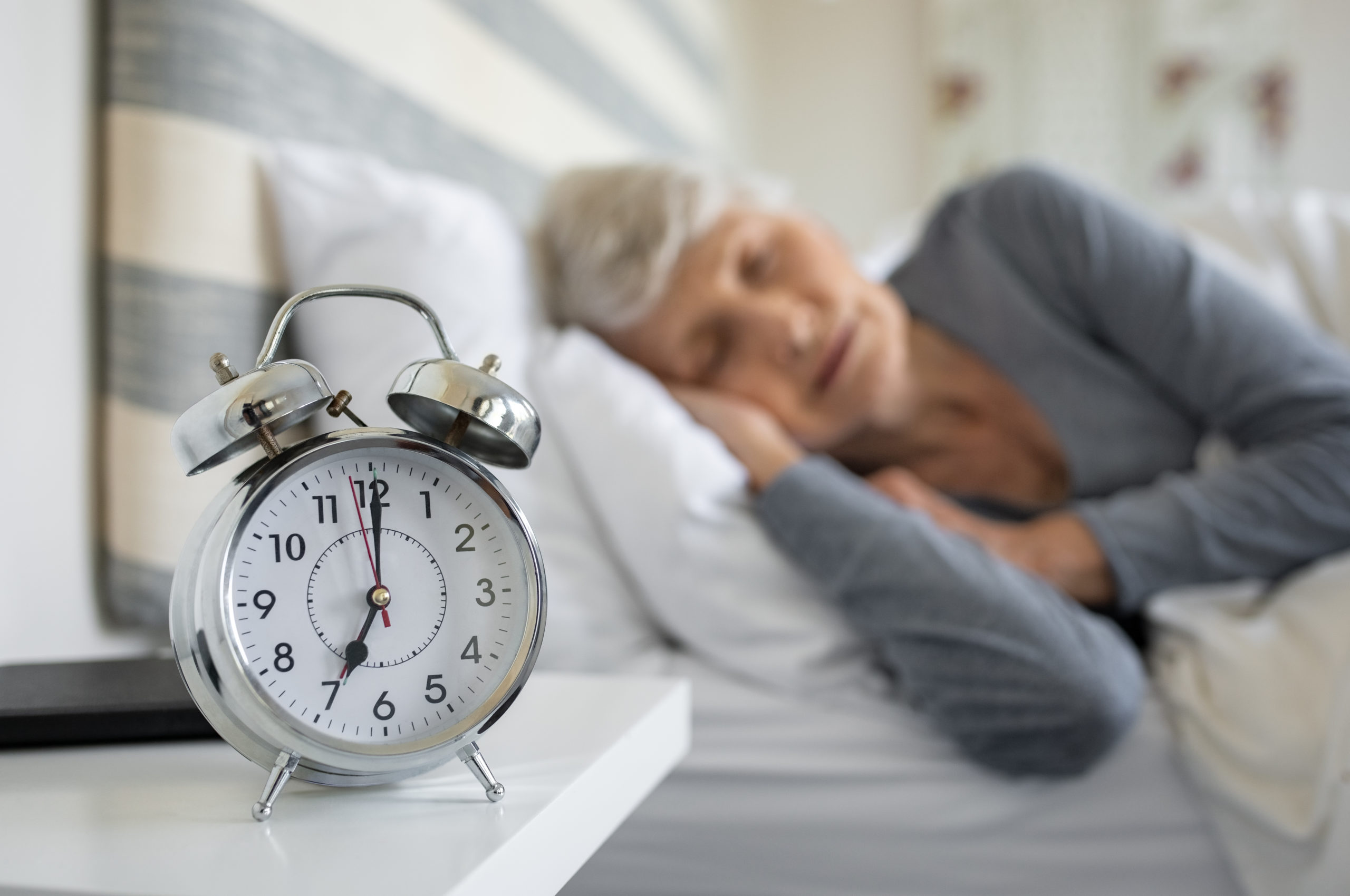4 Min Read
Sleep and Aging: Never Underestimate the Power of a Good Night’s Sleep

Older adults still need 7-9 hours of sleep each night, the same as younger adults. However, several physical changes that occur as we age may make it harder to fall and stay asleep at night. Chronic conditions like heart failure, arthritis, and Alzheimer’s disease, for example, can contribute to our inability to sleep well. So can sleep apnea and other disorders, certain medications, and even retirement or drastic changes in schedules.
More than half of men and women over the age of 65 experience at least one sleep problem each night. These might include more time in light sleep, more disrupted deep sleep, health conditions that impact sleep quality or quantity, and more frequent daytime naps that can lead to inconsistent sleep at night.
When you don’t get the recommended 7-9 hours of sleep each night, you may become irritable, have memory or cognitive problems, feel sad or depressed, and even experience more falls or accidents.
Even as we age, it’s important to set ourselves up for a night of successful sleep. Are you or your senior loved one struggling to rest peacefully at night?
Here are a few sleep and aging tips.
- Talk to your doctor. Review all medications and health conditions. You never know what underlying condition or current one may be affecting your sleep quality. If you’re experiencing chronic pain, for example, talk to your doctor about medications that may help you sleep more easily and pain-free at night.
- Ask your doctor about natural supplements, like Melatonin, that may help you fall asleep. Make sure these supplements do not interact with any other medications you’re taking.
- Try to follow a regular sleep schedule. Aim to go to bed and wake up around the same time each day, even on weekends and when you’re traveling.
- Create a bedtime routine that lets your brain know it’s time to relax and get ready for sleep. This may include taking a warm bath, reading a book, or listening to relaxing music.
- Stretching can also help to ease aches and pains before bedtime. Try a gentle bedtime yoga or stretch on your own for a few minutes each morning and at night before bed.
- Regular exercise is great for improving sleep quality, too. Just make sure you do not exercise within 3 hours of bedtime.
- Consider your sleep environment. Use your bedroom only for sleeping. Make sure it’s as dark as possible, with limited lights from the TV, computer screen, and other mobile devices. The blue light will disrupt your body’s natural sleep patterns. Consider spraying or using lavender essential oils to create a calming effect.
- Limit daytime napping. If you need to nap, rest for no more than 20 minutes. And, make sure you’re not napping too close to bedtime. If you find napping during the day makes it harder for you to sleep at night, avoid napping altogether.
- Limit your caffeine intake, especially during the 8 hours before bedtime.
- Avoid large meals and beverages, especially alcohol, at least 2 hours before bedtime to minimize belly aches, sleep disruptions, and trips to the bathroom.
Additionally, here are a few tips to set up a safe, restful sleep space for seniors.
- Make sure all windows and doors that lead to outside are locked before going to bed.
- Ensure you have smoke alarms installed and working on all floors of your home.
- Keep your cell phone or telephone with all emergency contacts nearby in your room.
- Have a lamp within easy reach, in case you need to get up or turn it on during the night.
- Put a glass of water next to bed, in case you get thirsty during the night. This will eliminate getting up and out of bed, which disrupts your sleep patterns, but also unnecessary trips or falls on the way to the kitchen.
- Don’t smoke, especially not in your bed.
- Remove any tripping hazards, like rugs or slippers, near the bed, in case you need to get up in the middle of the night.

0 Comments